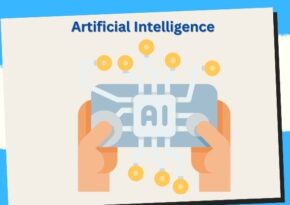
 Putting People First: The Power of Human-Centered AI
Putting People First: The Power of Human-Centered AI 


 The Promise of Human-Centered AI: Bridging the Gap Between Technology and Humanity
The Promise of Human-Centered AI: Bridging the Gap Between Technology and Humanity 
In a world where technology continues to evolve at an astonishing pace, the integration of Artificial Intelligence (AI) into our lives has become both ubiquitous and transformative. Yet, the quest to strike the right balance between innovation and human values has led to the emergence of an important concept: Human-Centered AI. This article explores the multifaceted realm of Human-Centered AI, its significance, applications, challenges, and the ethical considerations that guide its development.
Understanding Human-Centered AI

Human-centered AI, often abbreviated as HCAI, is an approach that places human well-being and values at the core of AI design and deployment. It prioritizes the development of AI systems that augment human abilities, enhance user experiences, and align with human values rather than solely focusing on technical advancements.

The essence of Human-Centered AI lies in the following principles:
- User-Centricity: HCAI seeks to understand and address users’ unique needs, desires, and limitations.
- Transparency: AI systems should be transparent, providing users with insights into how decisions are made.
- Ethical Considerations: HCAI takes ethical values into account, ensuring AI systems respect human rights, fairness, and societal norms.
- Safety and Trust: Ensuring AI systems are safe, reliable, and trustworthy is paramount in HCAI.
- Collaboration: Human-AI collaboration is encouraged, with AI systems working alongside humans rather than replacing them.
Applications of Human-Centered AI

Human-centered AI has diverse applications across various industries, enhancing user experiences and outcomes:
- Healthcare: AI-driven diagnostic tools and personalized treatment plans improve patient care and outcomes.
- Education: Personalized learning platforms adapt to individual student needs, fostering a more effective and engaging educational experience.
- Finance: AI-based financial advisors assist users in making informed investment decisions tailored to their financial goals.
- Autonomous Vehicles: Ensuring safety and user trust is central to developing self-driving cars, a key HCAI application.
- Customer Service: Chatbots and virtual assistants provide quick and efficient support, enhancing customer satisfaction.
- Entertainment: Recommendation systems personalize content, delivering entertainment that aligns with users’ preferences.
- Smart Homes: AI-driven home automation systems make life more convenient and energy-efficient while prioritizing user comfort and security.
Challenges in Implementing Human-Centered AI

While the concept of Human-Centered AI holds immense promise, its implementation is not without its challenges:
- Ethical Dilemmas: Balancing AI’s potential for good with ethical considerations, such as privacy and bias, is an ongoing challenge.
- Complex Algorithms: Designing algorithms that are transparent, interpretable, and aligned with human values can be complex.
- Data Privacy: Safeguarding user data while providing personalized experiences remains a delicate balancing act.
- Human-AI Collaboration: Determining the right level of interaction and collaboration between humans and AI is a nuanced challenge.
- User Education: Ensuring that users understand AI capabilities, limitations, and implications is an ongoing education challenge.
- Regulatory Frameworks: Developing regulatory frameworks that protect human interests without stifling AI innovation is a fine line to tread.
Ethical Considerations in Human-Centered AI

Addressing ethical considerations is at the heart of Human-Centered AI. Here are some key ethical considerations:
- Fairness: Ensuring AI systems do not discriminate against individuals based on factors like race, gender, or age is a central ethical concern.
- Transparency: AI systems must be transparent, allowing users to understand the rationale behind their decisions.
- Privacy: Protecting user privacy is paramount. Data collection, storage, and usage should align with users’ consent and legal standards.
- Accountability: Establishing clear lines of accountability is essential. Who is responsible when AI systems make decisions that impact individuals?
- Bias Mitigation: Efforts should be made to mitigate bias in AI systems, ensuring they do not perpetuate or exacerbate societal biases.
- User Consent: Users should have agency and consent in interactions with AI systems, particularly in cases where sensitive information is involved.
- Beneficence: AI systems should maximize benefits and minimize harm to individuals and society.
- Human Autonomy: AI should enhance human autonomy and decision-making rather than diminishing it.
The Future of Human-Centered AI

The journey of Human-Centered AI is ongoing, with several trends and developments shaping its future:
- Explainable AI: Advances in explainable AI will make AI systems more transparent and accountable.
- AI Regulation: Governments and international bodies will continue establishing regulations that balance innovation and ethical considerations.
- AI Education: Increased AI literacy among the public will foster a deeper understanding of AI’s capabilities and ethical implications.
- AI Ethics Committees: Organizations and industries will establish AI ethics committees to ensure adherence to ethical standards.
- Human-AI Collaboration: AI will increasingly complement human skills, making interactions more collaborative and productive.
Conclusion
Human-Centered AI represents a pivotal shift in how we approach technology development and deployment. By placing human values, ethics, and well-being at the forefront, we can harness the incredible potential of AI while safeguarding individual rights and societal values. As we navigate the ever-evolving landscape of AI, the principles of Human-Centered AI will serve as our guiding compass, ensuring that technology and humanity continue to coexist and thrive in harmony.
Related Queries










Save/Share this story with QR CODE
Disclaimer
This article is for informational purposes only and does not constitute endorsement of any specific technologies or methodologies and financial advice or endorsement of any specific products or services.
 Need to get in touch?
Need to get in touch?

We appreciate your reading. 
1.) 

Your DONATION will be used to fund and maintain NEXTGENDAY.com
Subscribers in the Philippines can make donations to mobile number 0917 906 3081, thru GCash.
3.) 
4.) 
AFFILIATE PARTNERS

World Class Nutritional Supplements - Buy Highest Quality Products, Purest Most Healthy Ingredients, Direct to your Door! Up to 90% OFF.
Join LiveGood Today - A company created to satisfy the world's most demanding leaders and entrepreneurs, with the best compensation plan today.













